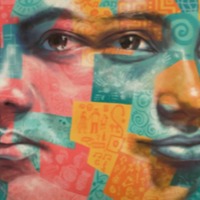
I was sold to a man in Oman.
I would start working at 4:30 a.m. and finish at 1 a.m. For the entire day they wouldn’t let me sit. I used to be exhausted. There were 20 rooms and over 2 floors. He wouldn’t give me food. When I said I want to leave, he said, “I bought you for 1,560 rials (US$4,052) from Dubai. Give it back to me and then you can go.
I begged their mother, ‘Your sons won’t leave me alone at night. Please let me go home’.
[Her employer’s wife sent Asma back to the agent who beat her and sent her to work for another employer where she faced the same conditions. She later fled her new employer and came across a Bangladeshi worker who took pity on her and gave her some cash]
I left the house and walked for hours. I was exhausted. I took four taxis to go to the embassy. It cost me 30 rials ($78).
As told to researchers for Human Rights Watch









